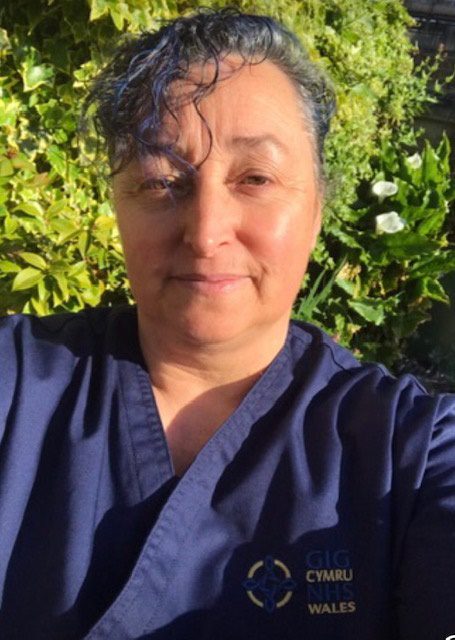A Hywel Dda mental health worker voices how the pandemic has impacted the topic of mental health and made it more acceptable to talk about.
Katherine Lewis, Team Manager for the Older Adult Community Mental Health Team says it’s not surprising that mental health cases have increased since COVID-19.
“There was a lot of fear during the first COVID wave, as there was a lot of negative coverage in the tabloids.
“A lot of patients struggled. There was a lot of isolation, and the informal support they would receive from friends, neighbours and family had stopped.”
Katherine and her team cover the Pembrokeshire area, but mostly care for patients within their own homes.
“We’ll go out to see people with mental health problems that have also got severe or enduring health problems that impact on their function.
“There are risks involved. We provide assessment and interventions to minimise the risk involving wandering, aggression, distress and low mood, and hopefully promote recovery.”
Prior to the pandemic Katherine and her team would not wear uniform on shift, however uniforms were safer and practical after COVID-19 hit.
“Communication was quite difficult for people with dementia, not understanding the PPE and why we were wearing masks in their home.
“We had to keep reassuring them and explaining. But for people with dementia, particularly it can cause a lot of additional distress and difficulties.”
“We would provide letters in assessments for patients to be able to get out in the car, to minimise some distress that they felt.”
Care packages stopped during the pandemic to minimise contact, meaning patients weren’t receiving their regular visits from carers.
“When you’ve got someone with dementia those regular contacts with loved ones and carers are very important.
“The lack of fresh air, being out in nature, it can affect people’s mental health negatively if you haven’t got access to those resources.
“We were lucky that in quite a few areas in Pembrokeshire there’s still a sense of community and a lot of support going on.”
Katherine’s husband was working in Mumbai and quarantined alone for 7 months during the pandemic, before he retired and returned home in 2020.
“I did worry about his health because he had nobody there with him. I would have worried if he’d been quite unwell over there.
“Luckily, he didn’t catch COVID-19 while he was over there which is good. He then managed to come home in October.”
Katherine and her husband reside in Pembrokeshire, but they had previously lived abroad, in places such as Alaska and Texas.
“I would have found it really difficult to be living abroad during COVID-19and not be here to support my parents and my in-laws.
“I was glad to be home when it happened. I was very protective and didn’t want any of them leaving the house.
“I would do stuff for them. Whatever needed to be done if it would minimise the risk to them because they’re all over 70.”
Katherine also lives with her daughter who was home-schooled and working towards her GCSE qualifications during the pandemic.
“She was a lot of strength for me because she never complained once and she was always upbeat and helpful when I got home.”
Listen to Katherine’s full podcast here (also available on Spotify).
Listen to other episodes here
Help keep news FREE for our readers
Supporting your local community newspaper/online news outlet is crucial now more than ever. If you believe in independent journalism, then consider making a valuable contribution by making a one-time or monthly donation. We operate in rural areas where providing unbiased news can be challenging. Read More About Supporting The West Wales Chronicle






















